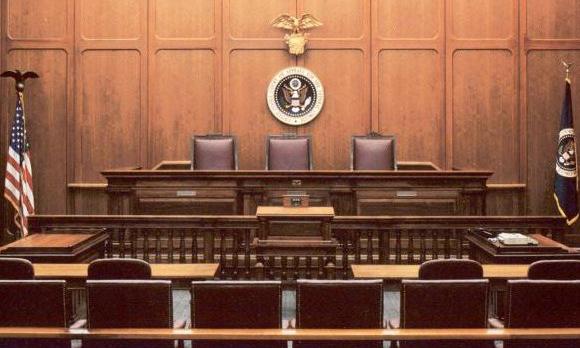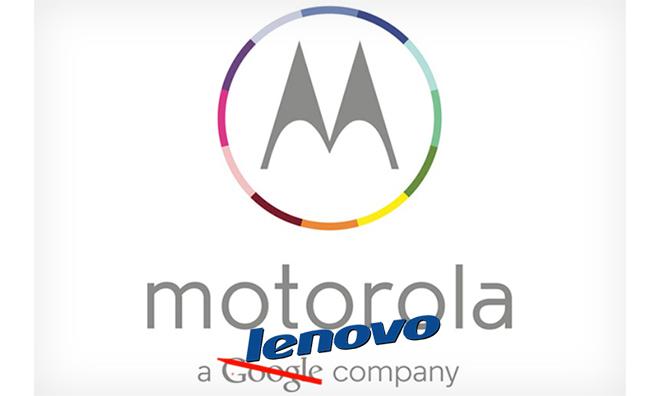With a court battle against Samsung raging on the West Coast, Apple on Tuesday asked the U.S. Court of Appeals for the Federal Circuit in Washington, D.C. to renew a lawsuit against Motorola's alleged unreasonable licensing fees for declared-essential cellphone technology.
Apple counsel requested that the U.S. Court of Appeals for the Federal Circuit revive a lawsuit against Google's Motorola Mobility over a FRAND (fair, reasonable and non-discriminatory) contract, claiming the handset maker charged unreasonable rates for declared standard essential 3G cellular tech, reports Bloomberg.
"You're talking about billions of dollars hanging over the head of Apple," Apple lawyer Joshua Rosenkranz said in court today.
The case is an extension of a FRAND-related action that was dismissed by a Wisconsin district court in 2012.
Apple is reasserting the same argument seen in its opening brief to the CAFC appeal filed in July 2013. According to the document, the company claims Motorola "demand[ed] that Apple take a license at a rate that was more than 12 times what Motorola was charging other licensees for the same technology— a rate that was unfair, unreasonable, and decidedly discriminatory."
In the deal, Motorola asked Apple for 2.25 percent of each iPhone sale, a rate that would represent approximately $12 per iPhone, or "12 times what Apple was already paying to license Motorola's SEPs." It is thought that Apple was referencing indirect licensing fees paid to other component manufacturers.
At the hearing on Tuesday, Motorola attorney Kathleen Sullivan maintained that "a reasonable rate can be different for different implementers," and claims Apple did not respond to the company's "opening offer." Apple later tendered an offer to pay $1 per iPhone to "buy litigation peace and move on," but Motorola refused.
It is unclear how the ongoing lawsuit will affect Motorola Mobility's future handlers at Lenovo after the Chinese company purchased the handset maker from Google in January for $2.91 billion. The acquisition, which will give Google a six percent stake in Lenovo as part of the deal, is currently awaiting regulatory approval. Google will also hold on to "vast majority" of patents, but it is not known if the batch includes those being asserted by Motorola in the present case.
With a litigation history going back to 2010, the two companies have faced off in court a number of times, including the somewhat controversial Apple v. Motorola suit dismissed in 2012 by Judge Richard Posner. The CAFC heard arguments to reopen that case in September.
Aside from the CAFC case, Apple and Motorola have a suit pending in Florida over separate patent claims. A trial is slated to begin in August with the parties asserting a total of eight patents.
 Mikey Campbell
Mikey Campbell








-m.jpg)






 Charles Martin
Charles Martin
 Marko Zivkovic
Marko Zivkovic
 Andrew Orr
Andrew Orr
 Amber Neely
Amber Neely

 William Gallagher and Mike Wuerthele
William Gallagher and Mike Wuerthele











19 Comments
8-):D
[quote name="Brandon Powell" url="/t/177841/apple-moves-to-renew-frand-licensing-suit-against-motorola/0_100#post_2512798"]Oh you know what isn't "essential" slide to unlock[/quote] Motorola stupidity AGAIN?
[quote name="GTR" url="/t/177841/apple-moves-to-renew-frand-licensing-suit-against-motorola#post_2512806"] Motorola stupidity AGAIN?[/quote] Motorola was just a puppet with Google's arm up their ass...
[quote name="Brandon Powell" url="/t/177841/apple-moves-to-renew-frand-licensing-suit-against-motorola#post_2512798"]Oh you know what isn't "essential" slide to unlock[/quote] It is a natural experience though: [IMG ALT=""]http://forums.appleinsider.com/content/type/61/id/41491/width/350/height/700[/IMG] If you'd understood anything Apple does, you'd know why they design things the way they do. But perhaps you were just posting to be the first in a thread, which to me seems like an illogical thing to do, essentially negating what you wrote.
Oh you know what isn't "essential" slide to unlock
oh you know what isn't "essential" the up an down motion you're mom used on you're dad's cock to make you.